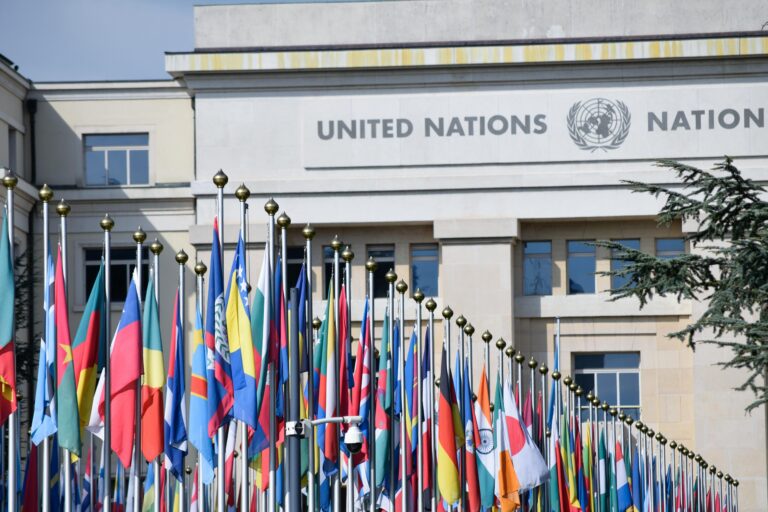‘I am deeply sorry for what was done to your ancestors’-Archbishop of Canterbury

“I’m sorry; I am deeply sorry for what was done to your ancestors.” Words expressed in a profoundly moving sermon by the 105th Archbishop of Canterbury, the Most Rev and Rt Honorable Justin Welby. Preaching at the service to mark the 200th anniversary of the Diocese of Jamaica and the Cayman Islands, with a very packed congregation at the National Arena. In the presence of diplomats, custodies and the Leader of the Opposition Mark Golding, Archbishop Welby made it clear that the presence of sin in the world was and still is very palpable and human beings, possessed by evil intent, pursue profit at the expense of human life and livelihood. Moreover, with the quest for power seemingly triumphing over human development and highlighting human flourishing rather than perpetuating injustices, Archbishop Welby made clear the metaphor of shepherds exploiting the sheep, as described in the book of the Prophet Jerimiah, is still relevant as there are those with evil intent who place profit over people. In response he says there must be a radical shift from power to people noting that this requires radical shifts in mindset and practice, nevertheless, the practice of conversion places the church at the forefront of advocacy for justice, equality, and equity over self-interest and egotistical motives.
People are important
Unlike some of his predecessors, such as William Temple Jr, in his book, Christianity and the Social Order, which focuses on how to arrive at consensus so as to maintain integrity in the public sphere and foster the mission of the Church, Archbishop Justin focuses on the value, worth and value of all persons including those whose ancestors were formally enslaved. He is often referred to as the spiritual head of the Anglican Communion, which some wrongly interpret to mean that he is like a pope, with powers to dictate policies and programmes to diocese’s and provinces. He is very clear that his role is a leader among other leaders – first among equals – and therefore does not have authority over the over the 40 provinces of the Anglican Communion.
Archbishop Welby, like his wife Caroline, has a heart for the hopeless, is sensitive to those who suffer injustices and are on the margins of society and who still suffer indignities due to the failure of those in power to uphold the dignity and worth of each human being. Nevertheless, Welby has much confidence in the Jamaican people, “It has been a joy to spend time in Jamaica, to celebrate such an important milestone with the diocese. Everywhere we went, we could see the Holy Spirit at work on this island – with Anglicans living out Jesus’ word in every corner of the country. From bringing aid and comfort to those affected by Hurricane Beryl to training the next generation of teachers, the church sits right at the heart of Jamaican life.”
Climate Change
On the heels of the devastating impact of Beryl, with wind speed of a category three hurricane, numerous persons destabilized and dislocated and property and crop damages amounting to billions of dollars, this visit of the Archbishop of Canterbury is very memorable. Moreover, experts have argued that such a hurricane is not normal for this time of year, and though very early in the season, it may very well be an omen of what is still to come. Indeed, the message of global warming, ignored at our peril, ridiculed by some and its impact driving many from their homes, Hurricane Beryl is a wake-up call that now, more than ever, is the time to take stock of the treatment of the environment. In fact, Archbishop Welby, speaking at a webinar on slavery and reparatory justice made the salient point that the impact of slavery and climate change are inextricably linked, in that the attitude which drives one group to oppress another also drives the destruction of the environment, guided by the will to garner power and greed.
Slavery and reparations
This historic visit brings to the fore the age-old discussion and debate about reparation or righting the wrongs of the past and Archbishop Welby did not shy away from the subject. His repeated apology for the role of the Church of England in the institution of slavery, on more than one occasion, but emphatically at the service at the National Arena is iconic and the commitment of one-million-pound sterling by the Church Commissioners, to be invested and the interests used for long-term expenditure in West Africa and the West Indies signal a commitment to amend the sins of the past.
Archbishop Welby acknowledges that the amount of money, though not nearly enough to compensate for the wrongs that were done to our ancestors, and there is much more that is to be done, nevertheless, signals a commitment to justice and equity. In writing the wrongs of the past, a first step is apology. This has to be followed by tangible action to correct the injustices and take steps to move towards reconciliation. In this regard, there is an emphasis on reparatory justice as, an apology by itself, without a commitment to change, is nonsensical and futile. To this end, every effort must be made to displace the will to power and instead affirm the worth, dignity, and value of people.
The will to learn
Archbishop Welby’s visit to Jamaica coincided with the celebration of the 200th anniversary of the Diocese of Jamaica and the Cayman Islands (Anglican Church) which was established in 1824. July 24, 1824 marks a significant milestone for this independent and autonomous church and the appointment of a bishop, Christopher Lipscomb, who was consecrated on July 25 of the same year, marked a turning point in direct English rule over the church. Though bishops were continually sourced from England for many years, including into the early 20th century, the writing was on the wall and the appointment of Percival Gibson, first Black Bishop of Jamaica, ushered in the era of a native, Black leadership and Jamaican-led church. At the same time, Archbishop Welby noted he is able to learn from this Church, “I said before I came that I had much to learn, and I have done just that – benefitting from the wisdom, insight and experience of those who live, work and study in Jamaica. As a church we should not shy away from conversations that reveal difficult parts of our history, and I thank those who took the time to challenge and educate me while I have been here.”
Rev. Garth Minott is the Suffragan Bishop of Kingston.






